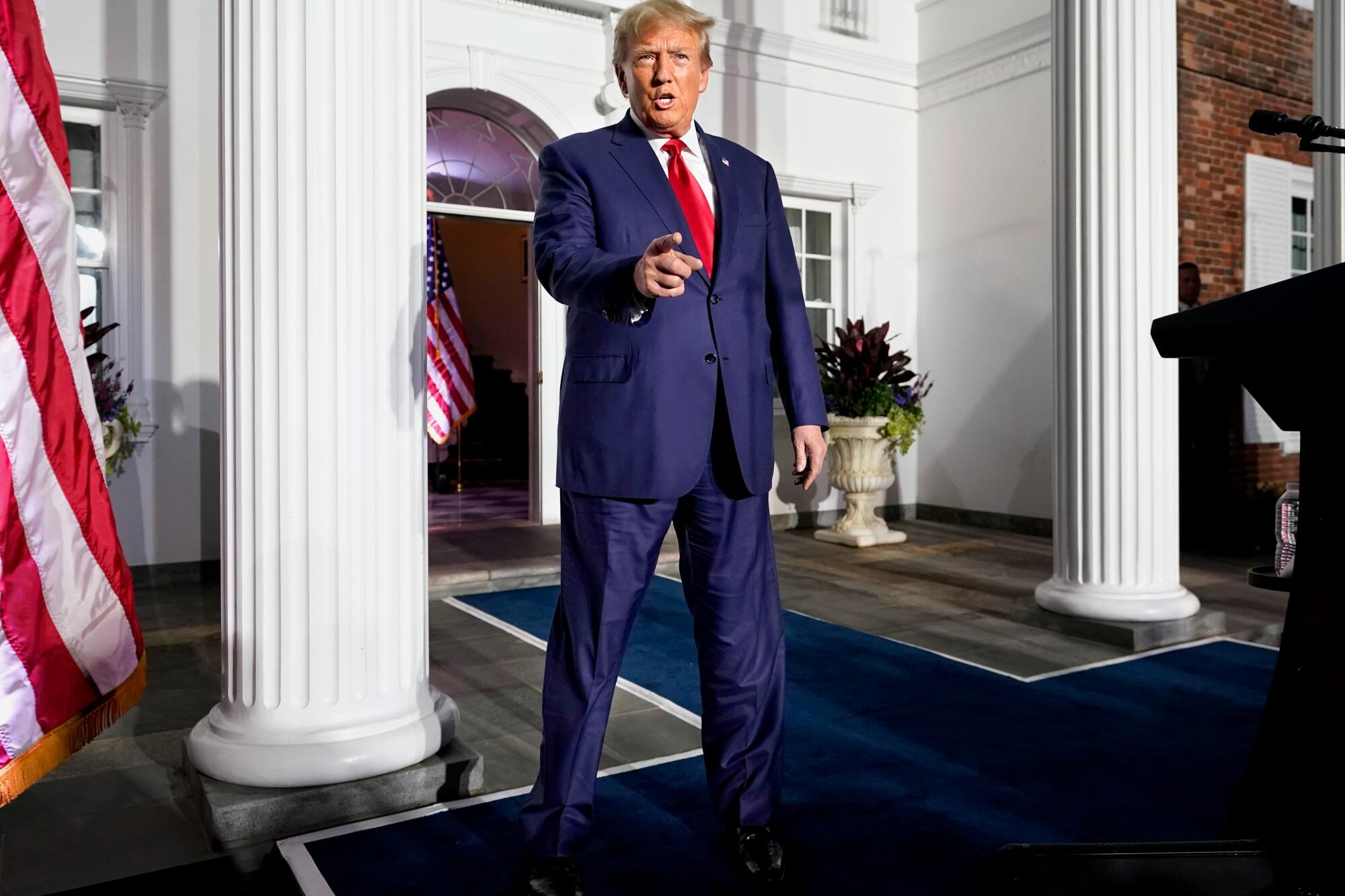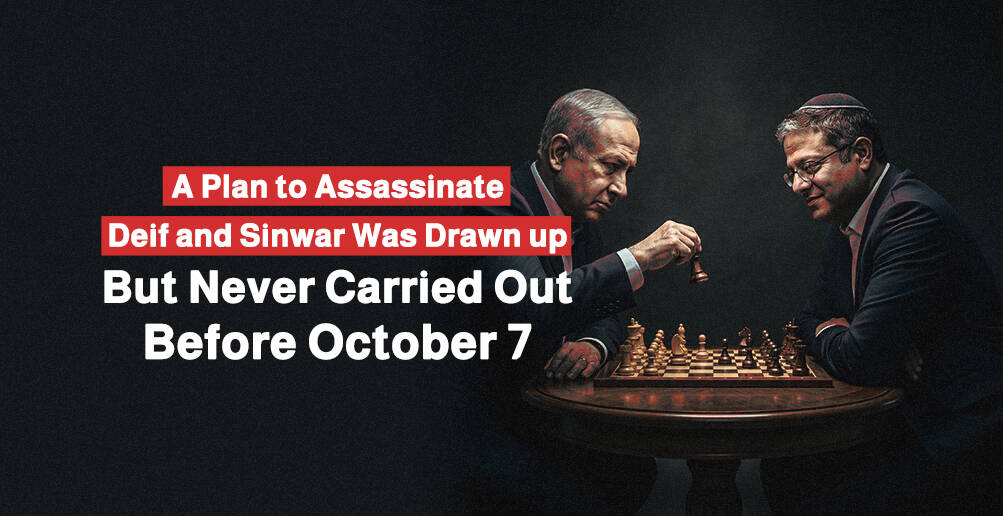Iran Warns Turkiye, UAE, and Qatar Over U.S. Ties but Gives Saudi Arabia a Pass: Why the Exception?

"Tehran needs Riyadh now more than ever."
While Iran warned several regional countries that any support for a potential U.S. strike would be seen as a “hostile act” with “serious consequences,” one country was notably absent from the list: Saudi Arabia—despite being previously included in similar threats back in 2024.
The warning, delivered by a senior Iranian official who spoke to Reuters on condition of anonymity on April 6, 2025, targeted Iraq, Turkiye, Qatar, the UAE, Kuwait, and Bahrain—all of which host U.S. military bases—urging them not to allow American forces access to their airspace or territory.
The official stressed that any such involvement would have “severe consequences,” adding that Supreme Leader Ayatollah Ali Khamenei had placed Iran's armed forces on high alert.
A Quiet Shift
This warning came shortly after a phone call between Iranian President Masoud Pezeshkian and Saudi Crown Prince Mohammed bin Salman during Eid al-Fitr, in which they discussed regional issues. Though not the first call between the two, this one carried new weight amid escalating regional tensions and Iran’s recent efforts to reassure its Gulf neighbors.
While the Saudi statement briefly mentioned regional developments and mutual interests, the Iranian version was more detailed. It reiterated that Tehran has no intention of pursuing non-peaceful nuclear energy and is open to full verification of its nuclear activities—as it had allowed in the past. It also expressed Iran’s willingness to resolve tensions through mutual respect and dialogue, emphasizing that while Iran does not seek war, it is fully prepared to defend itself.
What stood out most in the Iranian readout was the mention of Crown Prince Mohammed’s openness to mediating between Tehran and Washington. He was quoted as saying that Saudi Arabia could “play a constructive role in promoting stability and peace,” and was ready to help defuse tensions in the region.
According to Iranian affairs expert Hakam Amhaz, speaking to the BBC on April 4, 2025, Tehran would welcome Riyadh as a mediator—whether acting alone or alongside others like Qatar or Oman, which has long served as a bridge between Iran and the West. “We’re far from the brink of war,” Amhaz noted. “A settlement seems more realistic.”
This softening of tone toward Saudi Arabia marks a departure from October 10, 2024, when Iran warned Riyadh directly that it could no longer ensure the safety of Saudi oil facilities if “Israel” received any assistance for a potential strike on Iranian territory.

An Iranian Need
Iraqi researcher Muayad al-Douri believes that Saudi Arabia’s absence from the list of countries warned by Iran reinforces the idea that Tehran now needs Riyadh more than ever—especially to mediate with the United States and help avoid a potential military strike.
“Iran knows exactly how to play its cards. It closely observed how Saudi Arabia took on a mediating role in the Russia-Ukraine war, bringing Russian and American officials to the same table to try and end the conflict that began on February 24, 2022. For Tehran, Riyadh has become a better option than Muscat or Doha,” he told Al-Estiklal.
That’s why the recent call between President Pezeshkian and Crown Prince Mohammed bin Salman carries particular significance. As Lebanese writer Tony Francis explained, Pezeshkian understands Riyadh’s growing influence in shaping one of the most significant shifts in global politics in the 21st century. Iran, now more than ever, needs Gulf support, led by Saudi Arabia, to avoid isolation and possible strikes.
Writing in The Independent Arabia on April 7, Francis noted that “Iran now sees Saudi Arabia as a credible partner in finding a way out, especially as Riyadh plays an increasingly central role in facilitating U.S.-Russia dialogue.”
“This comes as Riyadh prepares to host Donald Trump—possibly for a high-stakes meeting with Vladimir Putin.”
“But the outcome of the U.S.-Iran standoff will ultimately be linked to the results of U.S.-Russia negotiations,” Francis added.
On April 1, U.S. President Donald Trump announced plans to visit Saudi Arabia soon, potentially in May, for his first overseas trip of his second term, aimed at signing a massive investment deal. The visit may also include stops in Qatar and the UAE.
Speaking to reporters in the Oval Office, Trump said, “It could be next month, maybe a little bit later,” confirming that the visit would focus on securing over $1 trillion in Saudi investments into the U.S. economy, including military purchases.
A source cited by Agence France-Presse (AFP) on the same day noted that the visit’s agenda is expected to include discussions on the three-year-old war in Ukraine and the ongoing Israeli war on Gaza.

Avoiding Fallout
Commenting on why Riyadh might take on a mediating role and what it stands to gain, Middle East expert Dr. Imadaldin al-Jubouri said Saudi Arabia’s foreign policy is not rooted in hostility or aggression toward its adversaries.
“If we assume that there is something in this direction [a Saudi mediation between Iran and the U.S.], it is well known that Saudi foreign policy is generally characterized by calm. The Kingdom tends to prioritize the overall interests of the region,” he told Al-Estiklal in February, 2025.
“Although Iran is currently in a difficult position and has suffered setbacks in Syria and Lebanon, and its sectarian project in the region is shrinking, it is not Saudi Arabia’s philosophy to exploit the opportunity and intensify the pressure on Iran. This would certainly provoke a reaction and destabilize the region,” al-Jubouri added.
“Saudi Arabia favors a two-pronged approach: de-escalation and problem-solving on the one hand, while refraining from interfering in Iran’s internal affairs on the other.”
“Under Crown Prince Mohammed bin Salman, Saudi Arabia has shaped its foreign policy around globalization, leading to closer ties with Russia, China, India, and Brazil, as well as its entry into the BRICS political and economic bloc,” according to the expert.
“All these signals suggest that Riyadh seeks to avoid side conflicts that could destabilize the region. Instead, it prioritizes lasting stability for the benefit of Arab and Islamic nations, with broader positive implications for the global landscape,” al-Jubouri concluded.
Saudi Arabia is open to mediating between the Trump administration and Iran in pursuit of a new deal to limit Tehran’s nuclear program, CNN reported on February 16, 2025.
According to the network, Saudi officials are concerned that Iran may now be more inclined to pursue a nuclear weapon, especially after the weakening of its regional proxies—long seen as a deterrent against potential Israeli strikes.
Riyadh hopes to leverage its close ties with Trump to offer Tehran a diplomatic bridge to the White House.

The current regional landscape is seen by Saudi officials as a historic opportunity to de-escalate tensions with Iran and improve bilateral relations. According to CNN, they are adamant about staying out of any potential U.S. or Israeli confrontation with Tehran.
Riyadh is concerned that Iran may be more inclined to pursue a nuclear weapon now that its regional proxies – long viewed as a deterrent against Israeli attacks – have been significantly weakened. Saudi officials see a new nuclear agreement as a crucial step toward preventing such an outcome, stressing that “a severely weakened Iran” does not serve Saudi interests.
Back in 2015, Saudi Arabia publicly welcomed the nuclear deal between Iran and world powers. Privately, however, the Kingdom was deeply frustrated with President Barack Obama’s administration for failing to address its concerns—chiefly Iran’s ballistic missile program and its growing network of regional proxies stretching from Yemen to Iraq and Lebanon, which Riyadh viewed as a direct threat to regional stability.
Later, Saudi Arabia endorsed President Donald Trump’s decision to withdraw from the deal in 2018. But just a year later, Saudi oil facilities came under a major drone and missile attack that temporarily halved the Kingdom’s oil output.
At the time, Yemen’s Houthi group claimed responsibility, saying the strikes were retaliation for Saudi and Emirati military operations targeting Houthi-controlled areas.
Sources
- Iran wants indirect talks with US, warns regional countries over strikes against it
- Saudi Arabia seeks to mediate between Trump and Iran on new nuclear deal
- Why Saudi Arabia is Pushing for Peace Between Washington and Tehran, Despite Iran's Weakening Power
- Saudi Crown Prince and Iranian President discuss regional developments [Arabic]
- Iran warns Saudi Arabia amid anticipation of Israeli response [Arabic]
- Iran on the U.S.-Russian negotiating line [Arabic]











